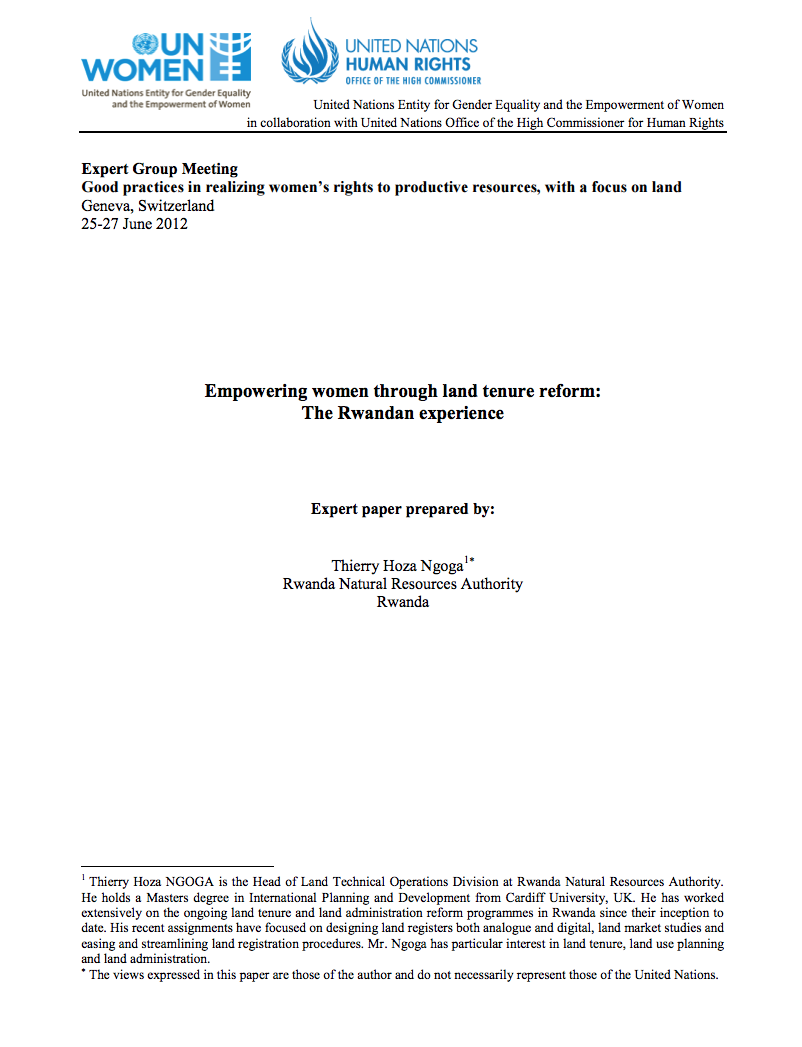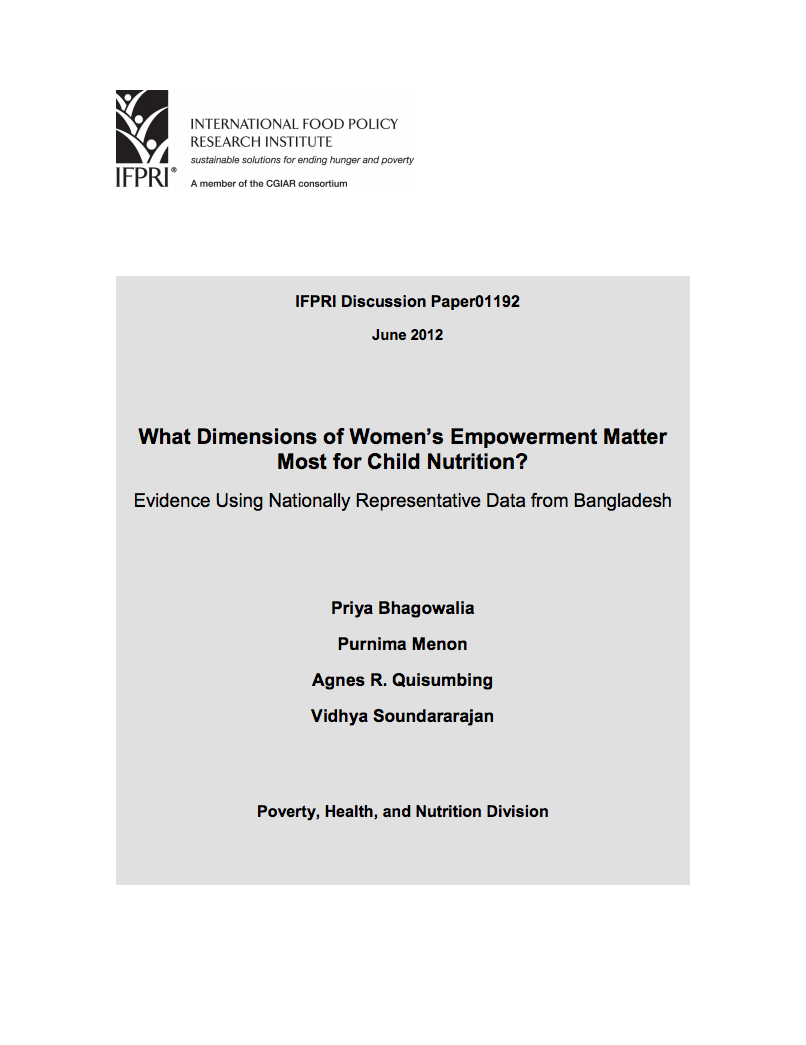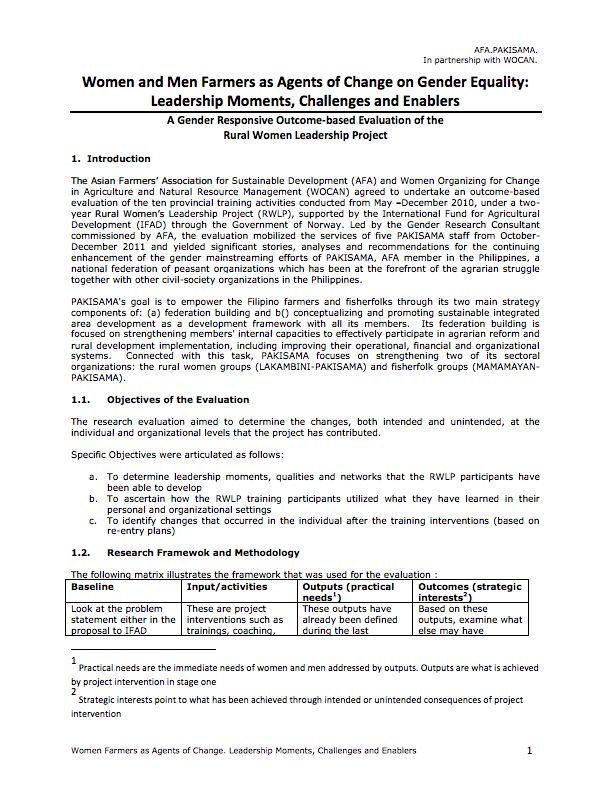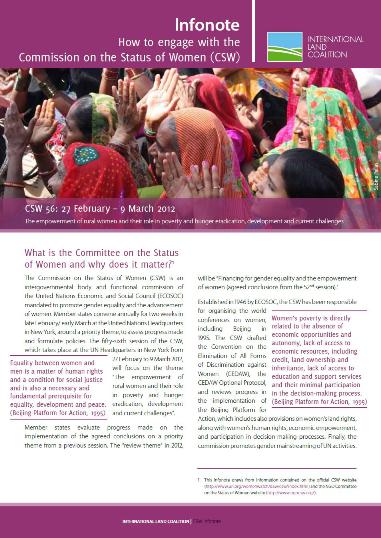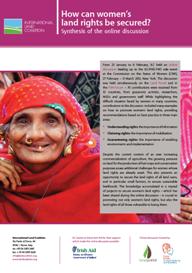Empowering women through land tenure reform:The Rwandan experience
Since 2004, Rwanda has embarked on an ambitious land tenure reform programme (LTR) aimed
at increasing security of tenure to all land owners and the elimination of all forms of
discrimination. This has largely been achieved through the establishment and implementation of
a new legal, regulatory and institutional framework.
This paper discusses the ongoing land tenure reform programme and its impact on women’s land
rights. It focuses on the role of women in the decision making in the course of developing the

